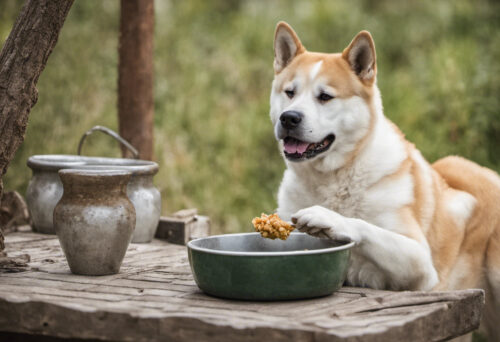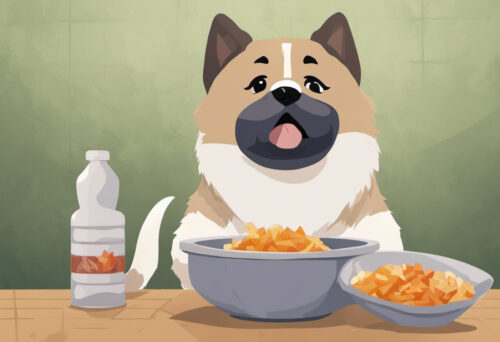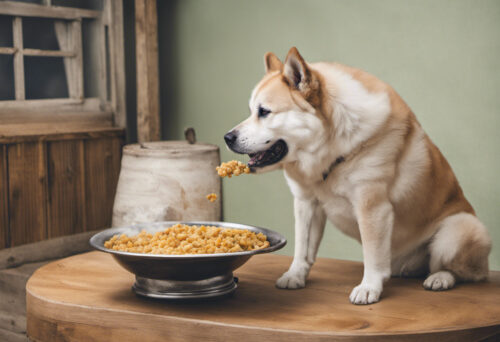There’s no doubt about it—taking care of an Akita comes with a high level of responsibility, one of which is ensuring that your pup has the right nutrition and diet. Considered as one of Japan’s national treasures, the Akita breed requires a tailored diet specifically for their unique nutritional needs. This guide provides practical steps towards crafting a balanced Akita diet that promotes optimal health and sustained energy.
Finding the Right Balance in an Akita’s Diet

Unlike other breeds, an Akita requires a high-protein diet to fulfill their energy requirements. Akin to their ancestors that roamed the wild, lean meat, poultry, and fish should be the primary composition of their meals. Consuming enough proteins ensures your Akita maintains muscle mass – vital for their high agility and strength. Here are some suggested sources of proteins for your Akita.
Carbs, Fats, and Fiber – Striking the Balance
While proteins are crucial, don’t overlook the necessity of carbs, fats, and fiber in the diet of your Akita. Quality carbs provide the energy required for your dog’s active everyday life, while fats contribute towards overall health and shiny coats. A good rule of thumb is having carbs and fats constitute about 10-15% and 15-20% of your Akita’s diet, respectively. As for fiber, the optimal range is generally 2-5% – just enough to aid your dog’s digestion without taxing the metabolism. More about Akita’s nutrition guide can be seen here.

The Role of Vitamins and Minerals
Vitamins and minerals play a significant part in promoting a host of bodily functions for your Akita. Essential vitamins like Vitamin A, B12, D are indispensable for maintaining your dog’s vision, nerves, and even bone health. Similarly, minerals like iron, calcium, and phosphorus help fortify the immune system, strengthen bones, and promote overall growth, respectively. Integrating fruits, vegetables, and specific dog supplements can be a good way to make sure your Akita gets all the vitamins and minerals needed. Learn more about essential vitamins and minerals for your dog here.
Understanding Your Akita’s Unique Nutritional Needs
Every Akita is unique, and so are their nutritional needs. What works for one may not necessarily work for another. Factors like age, weight, health status, and physical activity have to be taken into account when planning their diet. An older Akita might need more fiber and less protein, while a more active, younger Akita might need more of the latter and less of the former. Consulting with a veterinarian or a dog nutritionist can help you plan a balanced meal customized for your dog. Find more information on understanding your Akita’s unique nutritional needs here.

Akita nutrition doesn’t have to be complicated. With a balanced diet tailored to their specific needs, your Akita can enjoy an optimal state of health and stay energetic. Most importantly, remember that your best feedback source is your Akita. Keeping a close eye on their behavior and physical condition will tell you if you’re on the right track or need to make modifications. Here’s to happy, healthy Akitas!
